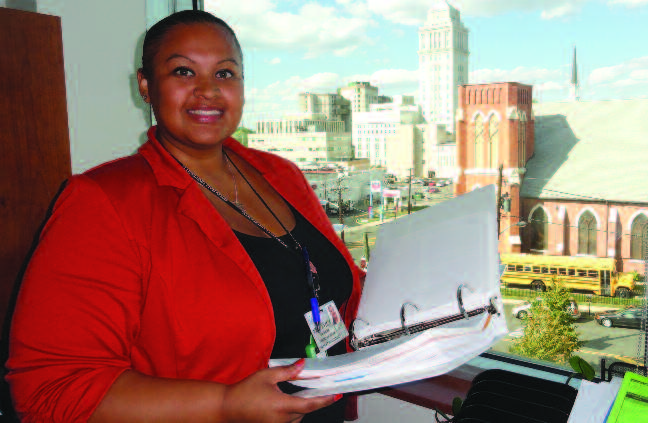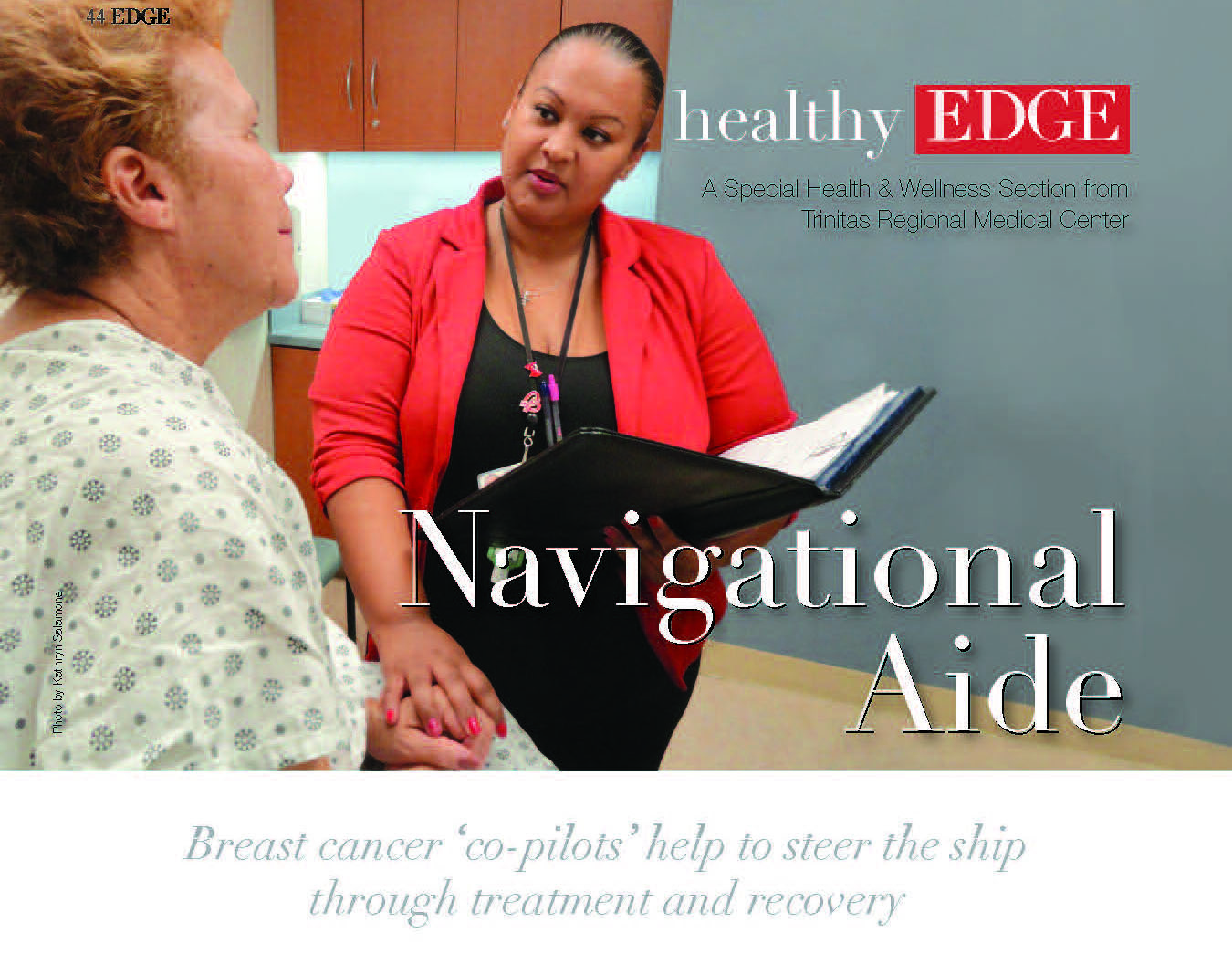Breast cancer ‘co-pilots’ help to steer the ship through treatment and recovery.
Too often, cancer treatment is complex and the added stress of making one’s way through myriad mazes of treatment options, insurance forms, doctors’ appointments, and various medical procedures can sap a person’s energy that would be better spent on fighting the disease. Several years ago, Trinitas Comprehensive Cancer Center recognized that many women with breast cancer were in need of a “navigator service” that would help them cut through the red tape surrounding their treatment. Breast cancer patients, Trinitas administrators surmised, would be able to best articulate their concerns and challenges to compassionate healthcare professionals, who could then direct them toward resources designed to help manage the disease. An innovative program was initiated, which showed promising results. Two years ago, the program was revamped to sharpen its focus, resulting in the Breast Cancer Patient Navigator program.
Veronica C. Vasquez, MHA, CN-BA, (left) heads the Breast Cancer Patient Navigator program at Trinitas and works to provide seamless care coordination while considering the unique needs of each patient. “The program helps facilitate patients’ access to doctors’ appointments, deal with insurance claims, and directs them to complimentary transportation and other supportive services,” she says. “Finally, a breast cancer patient navigator offers much-needed emotional support to patients at all phases of breast cancer treatment.”
One of the most frustrating parts of any medical treatment is getting answers to questions in a prompt manner. The Breast Cancer Patient Navigator program helps patients obtain answers to their queries regarding screening, diagnosis, treatment, insurance claims, follow-up visits, clinical trial participation, referrals, transportation, supportive services, and any other concern that may arise. It also assists patients in finding information on self-education resources, and with accessing community resources and cancer management services.
“We also direct patients to support groups that have been shown to help boost emotional well-being while providing coping mechanisms from others who have gone through cancer treatment,” adds Vasquez.

Breast Cancer Navigator, Veronica Vasquez, brings thoughtful caring and support to patients, as shown in the photo on page 44. From her office that overlooks the City of Elizabeth, she manages each patient’s case during their treatment at Trinitas.

Breast Cancer Navigator, Veronica Vasquez, brings thoughtful caring and support to patients, as shown in the photo on page 44. From her office that overlooks the City of Elizabeth, she manages each patient’s case during their treatment at Trinitas.
Dacia Gaillard, 43, who was diagnosed with breast cancer this past August, calls the Navigator program “a godsend.” Referred to the program by her physician, she gave it high marks and said it has enabled her to cope with a potentially overwhelming and stressful situation. “I am amazed by the amount of compassion I receive,” she says. “I feel reassured that I am not just a name or a number.”
In addition to helping navigate her way through doctors’ visits and insurance queries, Gaillard explains that she can count on Vasquez to “hold her hand” throughout the often long, and arduous, process. Vasquez had her first personal encounter with breast cancer in 2011, when a beloved aunt was diagnosed with Stage III IBC (inflammatory breast cancer). “Not only was it a life altering moment for her but for the entire family, as she was the first member of the family to receive a cancer diagnosis,” she recalls. “She passed away in 2012, but her legacy lives within all those she encountered, forever.”
At the time, Vasquez—who earned her master’s degree in health care administration from Seton Hall—never dreamed that she would have the position that she holds today. “Having had a close family member diagnosed with breast cancer, I hold the work I do to help these women in high regard,” she says. “I dedicate the work I do in loving memory of my aunt, who I miss greatly.”





